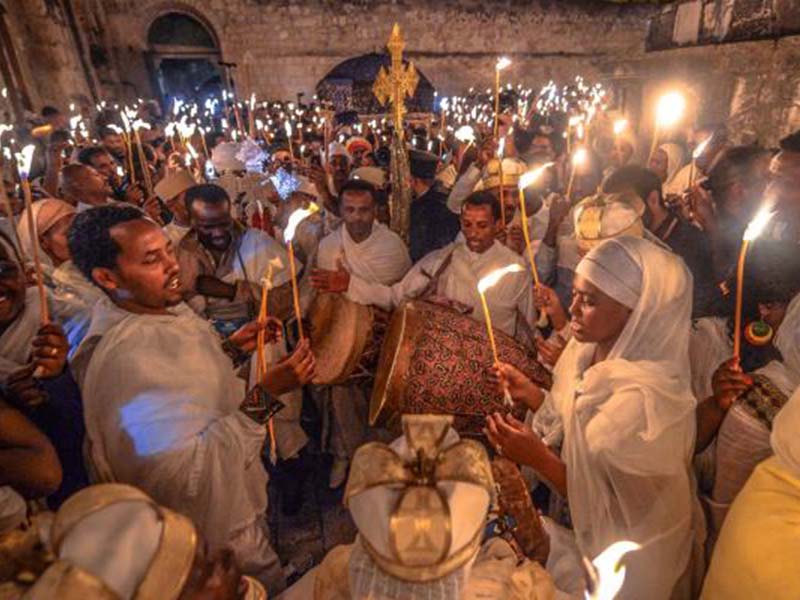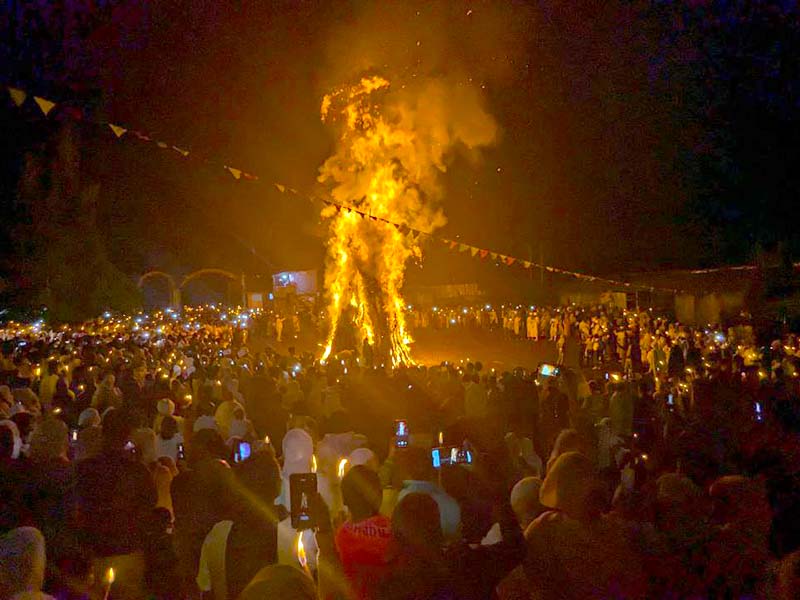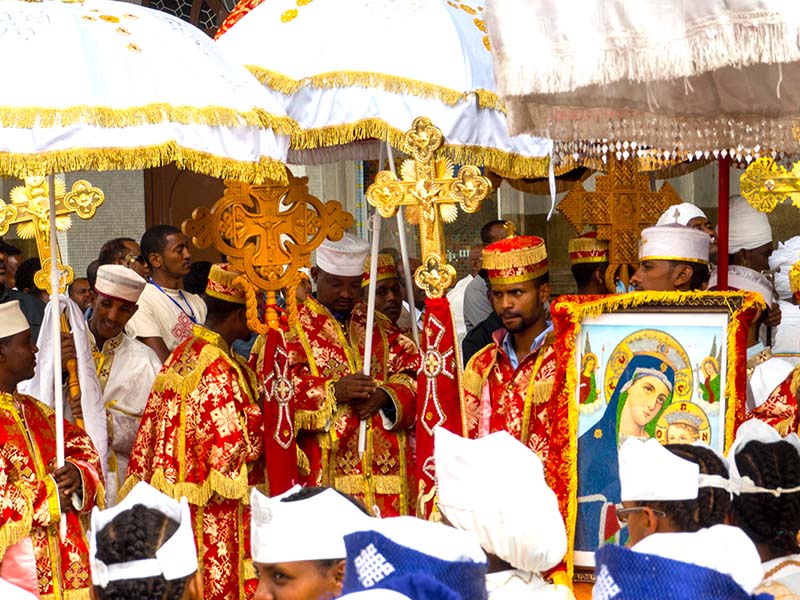Festivals in Ethiopia

Fasika – Easter (May, date varies)
Easter in Ethiopia, known as Fasika, follows a 55-day fasting period called Hudade or Abye Tsome, during which Orthodox Christians abstain from meat and dairy, consuming only plant-based meals such as lentils, grains, and vegetable stews. Meals are typically eaten after 3 PM, except on weekends when they follow the morning service.
On Easter Eve, a vibrant candle-lit mass takes place from 6 PM to 2 AM, with especially lively celebrations in Axum and Lalibela. After the service, families joyfully break their fast with chicken or lamb, often prepared the night before. Fasika is also a time of family gatherings and the exchange of traditional gifts such as lamb, goat, or homemade bread.

Meskel – Finding of the True Cross (September 26th and 27th)

Timkat – Ethiopian Epiphany (January 19th or 20th)
Timkat, celebrated on January 19th (or 20th during a leap year), is Ethiopia’s most vibrant festival, marking the Baptism of Christ by John the Baptist. The eve of Timkat, known as Ketera, sees the Tabots from each church paraded to a river or pool for the next day’s festivities. A special tent is erected for the Tabots, while church choirs chant hymns. Priests perform a unique dance with prayer sticks and sistera, accompanied by the rhythmic sounds of drums, bells, and trumpets, creating an unforgettable atmosphere of celebration.